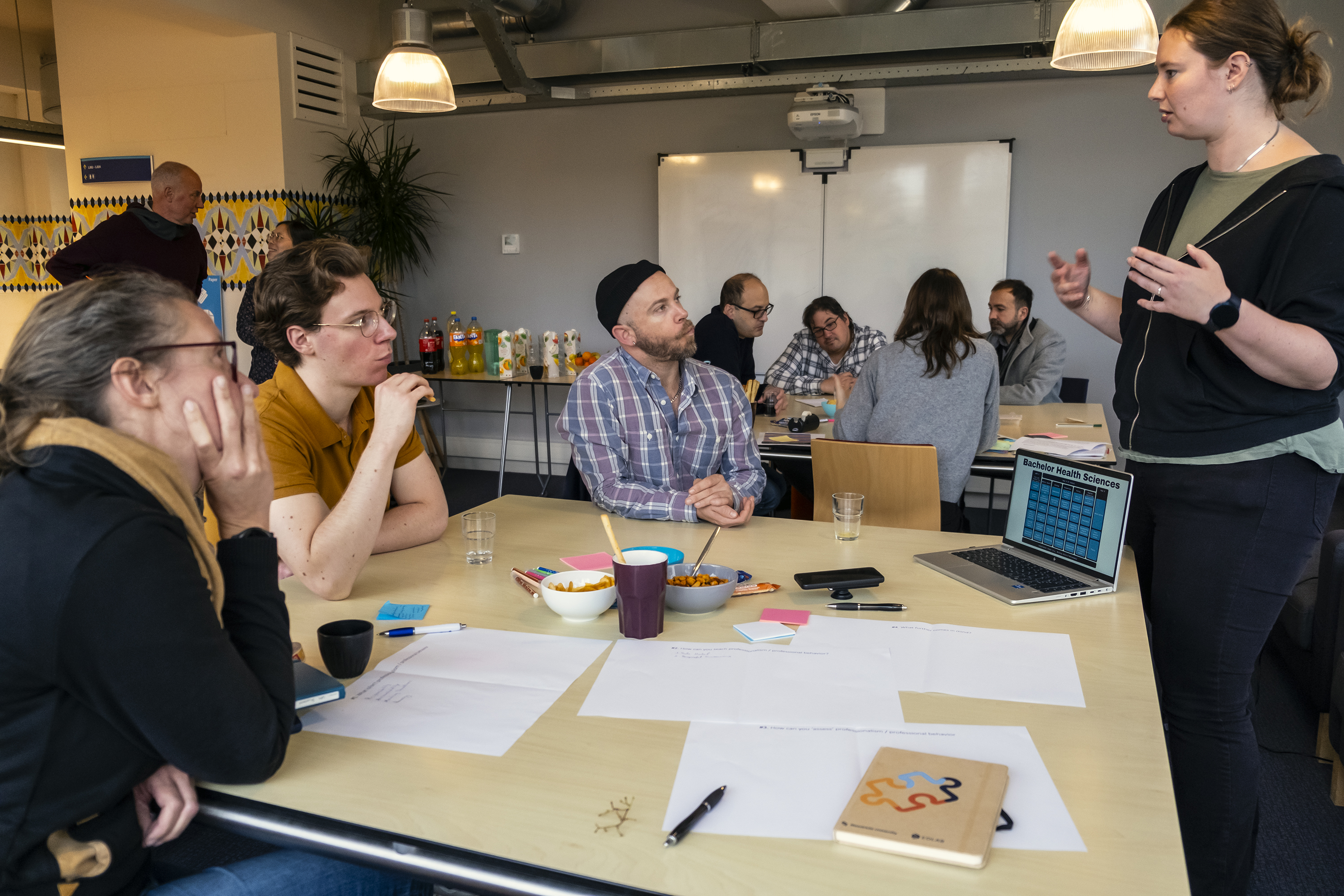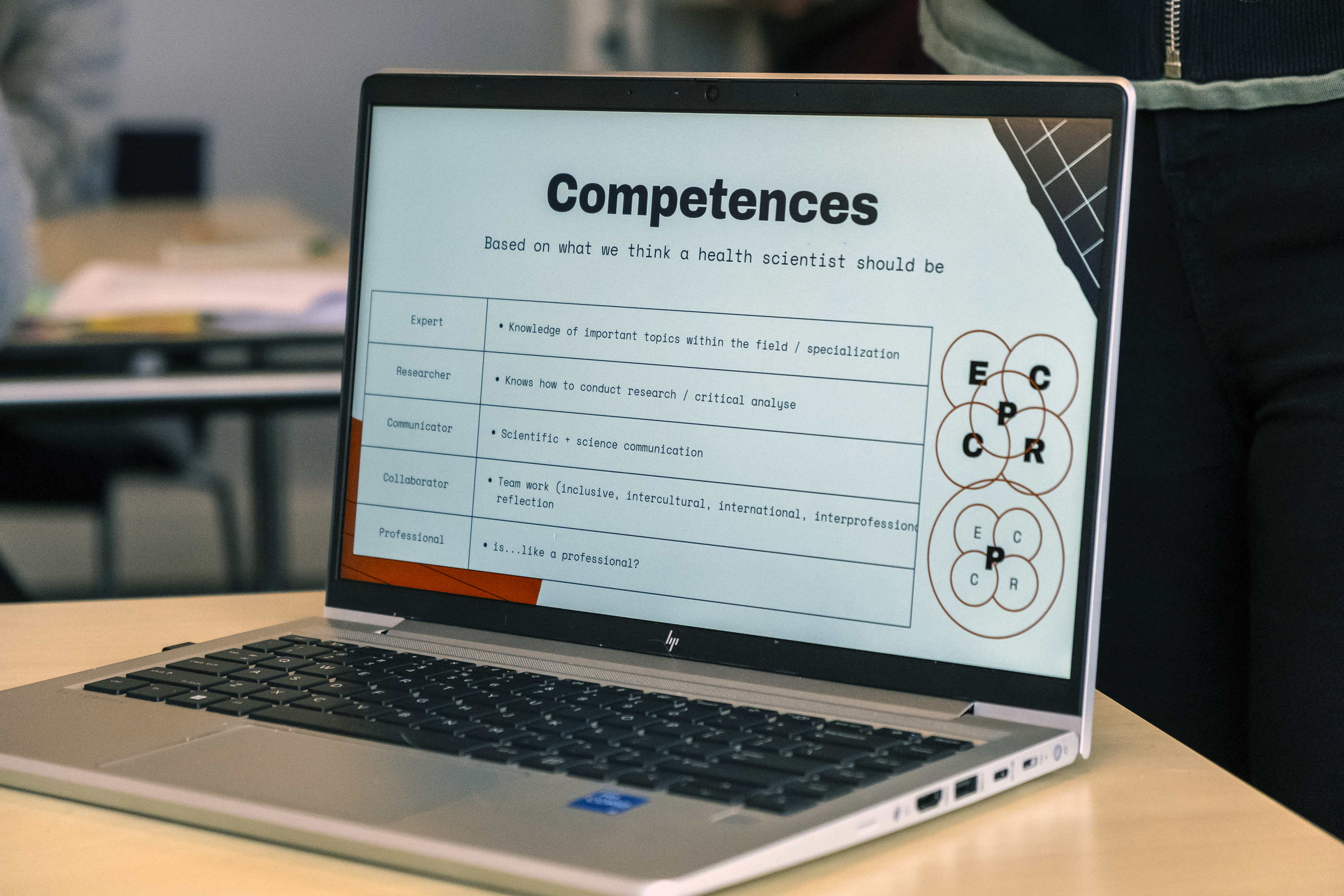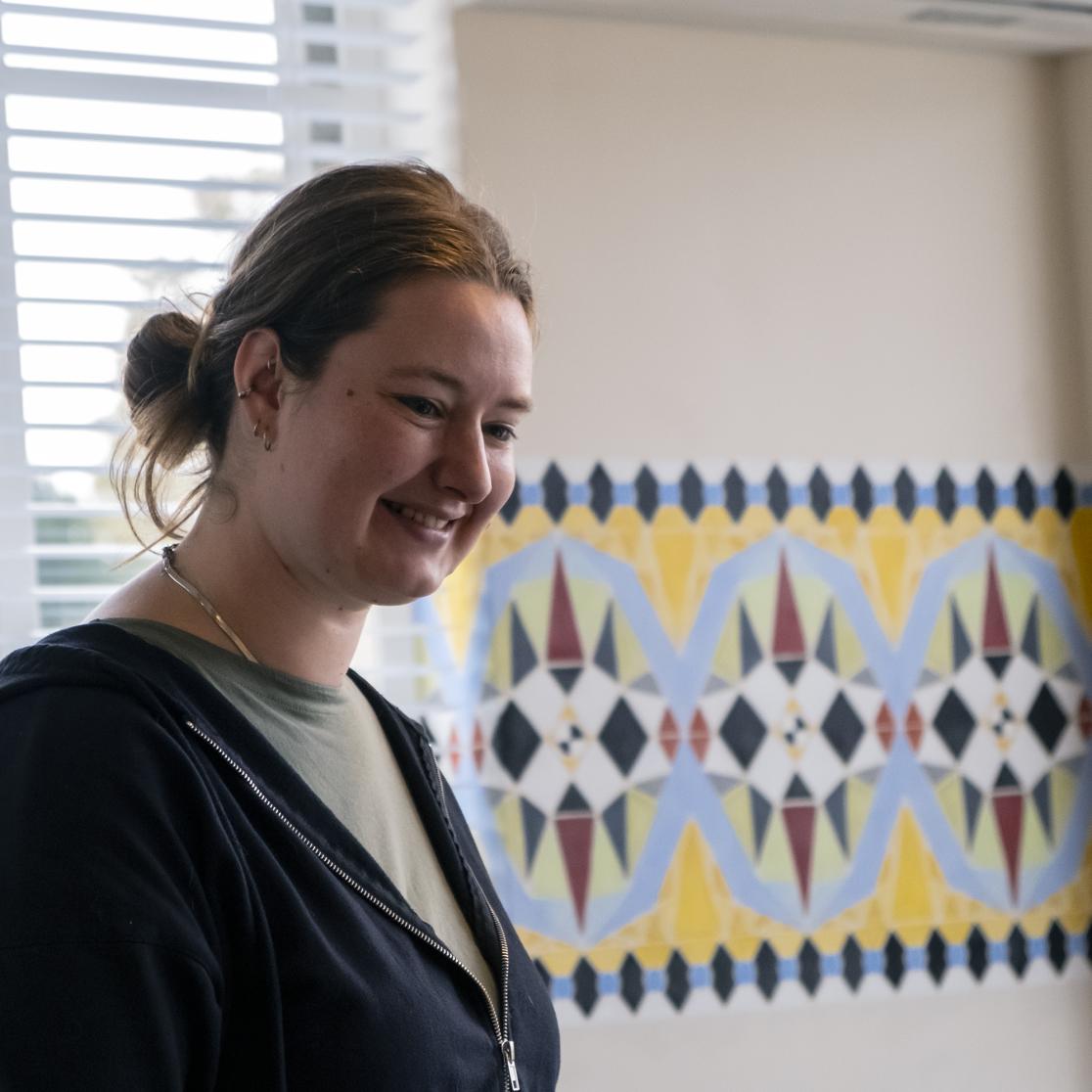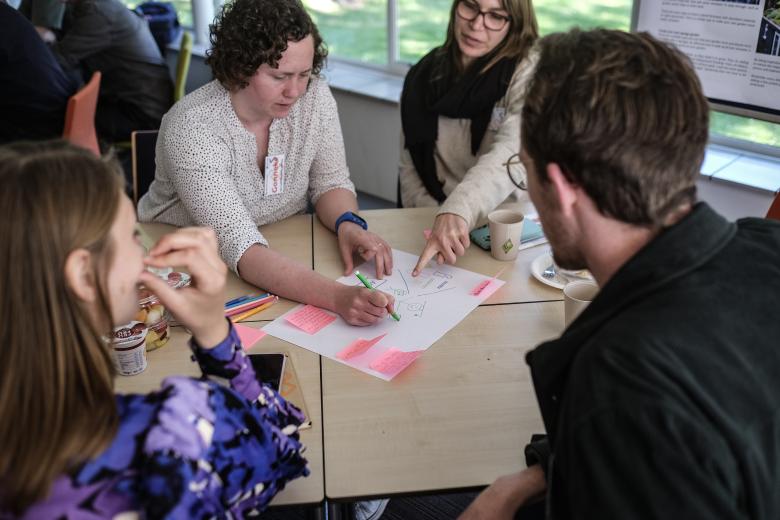Building careers, not just degrees – Daniëlle Zijlstra’s research on competency-based learning
Imagine university graduates entering the workforce with not just diplomas, but also the professional skills to collaborate, communicate, and lead. This vision drives Daniëlle Zijlstra's research fellowship project at EDLAB.
These students will be our colleagues in the future,” she says. “It’s part of our responsibility to ensure they’re ready to contribute meaningfully.” As an educational researcher and lecturer at FHML, Zijlstra aims to design a curriculum that bridges the gap between academic knowledge and the practical skills needed in today’s job market.
A journey inspired by students
Daniëlle Zijlstra’s path to education research began during her PhD when she discovered her passion for teaching and course design. “I got more energy from the education part than the research part,” she says.
She draws inspiration from engaging with students, understanding their experiences, and exploring ways to improve university education. “I love talking to students and seeing what’s on their minds, how they experience university, and what they want to achieve,” she explains.
Many students expressed uncertainty about their career paths. “It’s hard to know the way forward when you’re unsure where you want to end up,” she reflects, drawing parallels with her own student experiences. These insights as an educator and her personal journey as a student triggered her passion for education research and competency-building.

Teaching the skills beyond the degree
“Professional behaviour is a personal interest of mine,” Zijlstra explains. “It’s a very broad subject with multiple elements. It’s about sending an email with the right tone, not starting with ‘hey!’. It’s about true collaboration – not just dividing tasks in a Google Doc, but sitting together, discussing ideas, solving problems as a team, and creating something meaningful through shared effort.”
These skills, essential in any career, are often assumed to develop naturally during earlier education. Professional behaviour involves abstract qualities and context-specific expectations, making it difficult to teach.
Zijlstra challenges these assumptions, advocating for explicit teaching and support for these skills. “We assume students will pick them up along the way, but they don’t always. That’s where we, as educators, need to step in,' she says.” “It’s where we can see the most growth, but it’s also the hardest to improve.”

Bridging research and practice in education
Zijlstra’s work involves conducting a detailed literature review and interviewing students and faculty to identify gaps in existing curricula. “Designing education often relies on expertise in our specific fields, but we overlook the foundational theories and building blocks of education itself,” she says.
By diving into scientific literature and listening to those directly involved, Zijlstra aims to design an approach that is both research-based and actionable. Her focus is on integrating professional skills into the curriculum.
She is also enthusiastic about promoting self-directed learning, which she sees as essential for helping students navigate an uncertain future. “If students don’t know where they’re going, they won’t know how to get there,” she explains, emphasising the need for education that stimulates independence, adaptability, and problem-solving abilities.
Redefining what it means to graduate
Zijlstra’s project aims to reshape the university experience by focusing on what it truly means to graduate. “It’s not just about earning a diploma,” she explains, “it’s about leaving with the competencies needed to succeed in any career.”
“I want to create education that prepares students, wherever they end up,” she says. “Education should go beyond earning a degree,” she says. “It should equip students to thrive in the real world and make meaningful contributions to their fields.”

Text by EDLAB student-assistant Paula Aldaz Laquidain, master student (FHML)
Also read
-
Supporting PBL development at Anton de Kom University, Paramaribo, Suriname
Anton de Kom University in Suriname invited EDLAB to support its move towards Problem-Based Learning (PBL) within the Faculty of Social Sciences. To meet this request, Annechien Deelman from EDLAB delivered a week-long programme in early October 2025.

-
Warming up the classroom: music, mindfulness, and reflection in PBL
Athletes must warm up and concentrate before any performance. Why, then, do we expect our students to instantly become active when they enter a Problem-Based Learning (PBL) session?

-
Professional Development Exchange Hub: check the updated list of activities from Sept 25-Jan 26
Want to find out more about the latest educational developments while learning from colleagues from other universities? Then this is your chance to participate in workshops and courses from different universities in the Netherlands.
